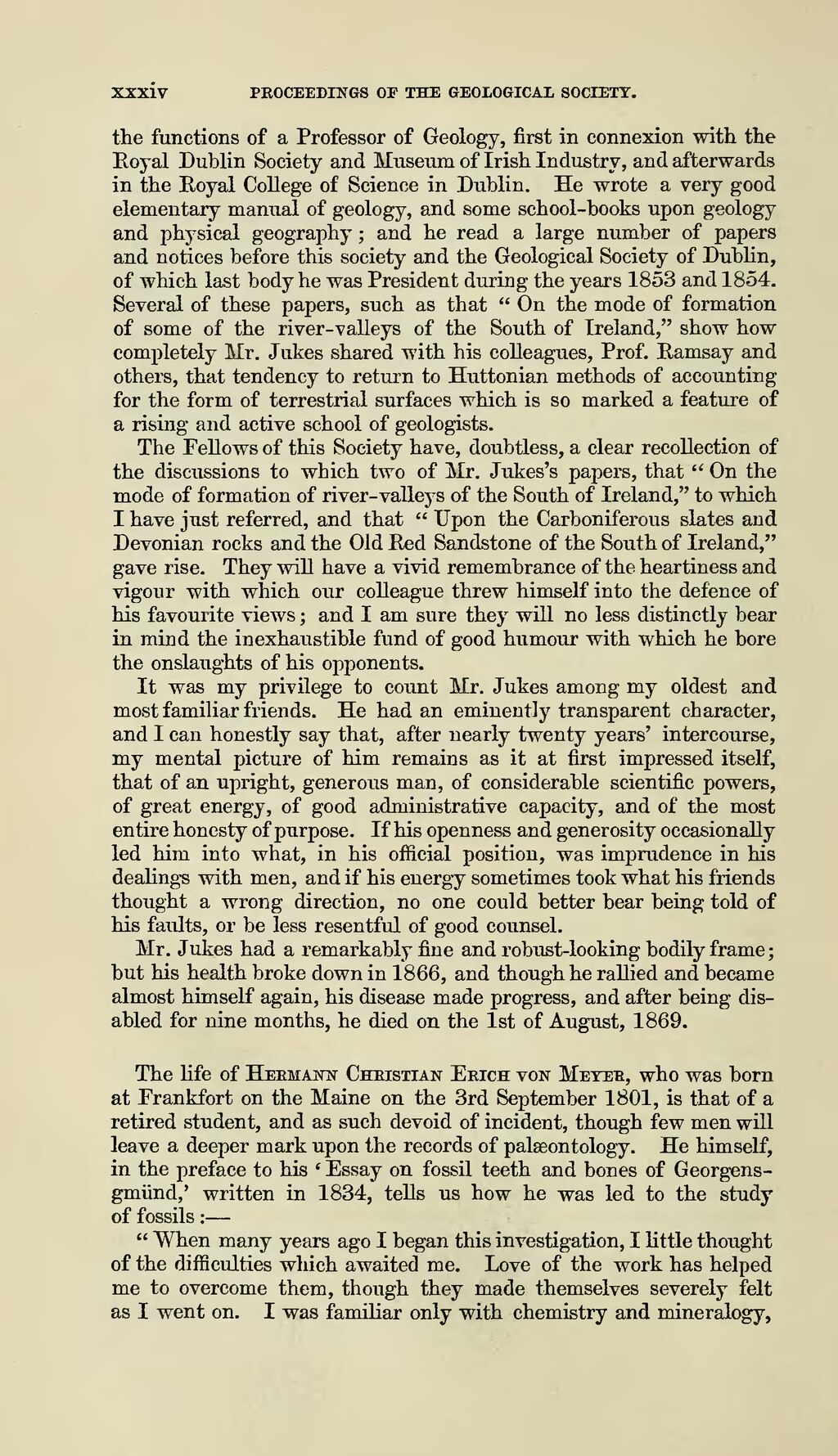the functions of a Professor of Geology, first in connexion with the Royal Dublin Society and Museum of Irish Industry, and afterwards in the Royal College of Science in Dublin. He wrote a very good elementary manual of geology, and some school-books upon geology and physical geography; and he read a large number of papers and notices before this society and the Geological Society of Dublin, of which last body he was President during the years 1853 and 1854. Several of these papers, such as that "On the mode of formation of some of the river-galleys of the South of Ireland," show how completely Mr. Jukes shared with his colleagues, Prof. Ramsay and others, that tendency to return to Huttonian methods of accounting for the form of terrestrial surfaces which is so marked a feature of a rising and active school of geologists.
The Fellows of this Society have, doubtless, a clear recollection of the discussions to which two of Mr. Jukes's papers, that "On the mode of formation of river-valleys of the South of Ireland," to which I have just referred, and that "Upon the Carboniferous slates and Devonian rocks and the Old Red Sandstone of the South of Ireland," gave rise. They will have a vivid remembrance of the heartiness and vigour with which our colleague threw himself into the defence of his favourite views; and I am sure they will no less distinctly bear in mind the inexhaustible fund of good humour with which he bore the onslaughts of his opponents.
It was my privilege to count Mr. Jukes among my oldest and most familiar friends. He had an eminently transparent character, and I can honestly say that, after nearly twenty years' intercourse, my mental picture of him remains as it at first impressed itself, that of an upright, generous man, of considerable scientific powers, of great energy, of good administrative capacity, and of the most entire honesty of purpose. If his openness and generosity occasionally led him into what, in his official position, was imprudence in his dealings with men, and if his energy sometimes took what his friends thought a wrong direction, no one could better bear being told of his faults, or be less resentful of good counsel.
Mr. Jukes had a remarkably fine and robust-looking bodily frame; but his health broke down in 1866, and though he rallied and became almost himself again, his disease made progress, and after being disabled for nine months, he died on the 1st of August, 1869.
The life of Hermann Christian Erich von Meyer, who was born at Frankfort on the Maine on the 3rd September 1801, is that of a retired student, and as such devoid of incident, though few men will leave a deeper mark upon the records of palæontology. He himself, in the preface to his 'Essay on fossil teeth and bones of Georgens-gmünd,' written in 1834, tells us how he was led to the study of fossils:—
"When many years ago I began this investigation, I little thought of the difficulties which awaited me. Love of the work has helped me to overcome them, though they made themselves severely felt as I went on. I was familiar only with chemistry and mineralogy,
